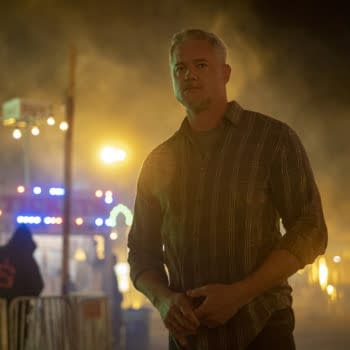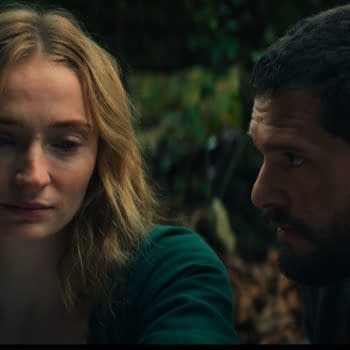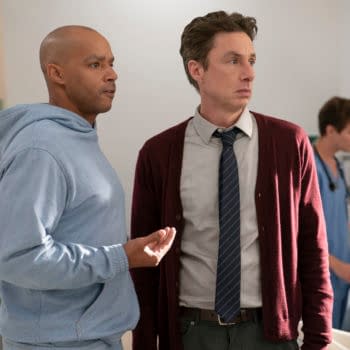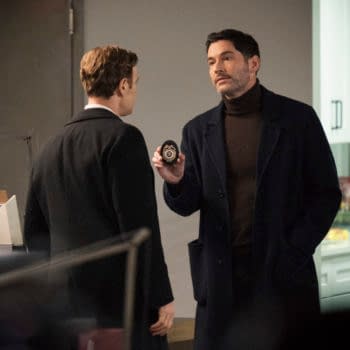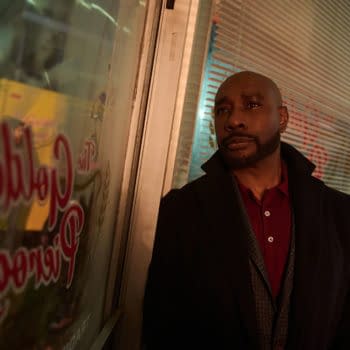Posted in: Audio Dramas, Star Trek, TV | Tagged: star trek, Star Trek: Khan
Star Trek: Khan: Kirsten Beyer on Meyers, Podcast Challenges & Casting
Star Trek: Khan writer Kirsten Beyer spoke with Bleeding Cool about bringing Nicholas Meyer's podcast to life, honoring the past, and more.
Kirsten Beyer has been a staple of Star Trek since the beginning of the Paramount+ era, starting with the franchise's triumphant return to TV with Discovery as the flagship series to usher in a wave of original programming for the streamer. She's also had a hand creatively in every live-action series from the anthology Short Treks, co-creating Picard, the sequel series to The Next Generation; contributed to Strange New Worlds, currently in season three; and the upcoming Starfleet Academy, Discovery's first spinoff set in the 32nd century. Her latest is a bit of a throwback of sorts in Star Trek: Khan, which shifts the franchise's narrative from the Federation to The Original Series arguably greatest villain, Khan Noonien Singh. Originally played by the late Ricardo Montalban in the TOS season one episode "Space Seed" and the 1982 film The Wrath of Khan, director Nicholas Meyer collaborated with Beyer and David Mack to co-write the audio drama, with Naveen Andrews taking over the role of Khan, while Wrenn Schmidt took over Lt. Marla McGivers, originally played by the late Madlyn Rhue.
Star Trek: Khan functions as act II between "Space Seed" and TWOK, where Khan, his crew, and the Federation expatriate McGivers, who joined him instead of facing a court-martial, on Ceti Alpha V, a planet full of uncertain threats that the 20th-century tyrant looked to tame. Beyer spoke to Bleeding Cool about how she became creatively involved with the writer-director, adapting to podcast storytelling, and why the Lost star and For All Mankind star were perfect in their respective roles while honoring their predecessors.
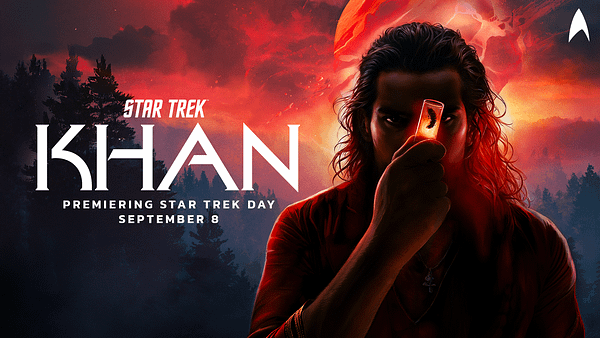
Star Trek: Khan EP/Writer Kirsten Beyer Bridging Khan and McGiver's Story
You've done so much in helping to usher in Star Trek for Paramount Plus. I was wondering, when you heard about Nicholas [Meyer] working on Star Trek: Khan, what went through your mind to collaborate with him and David [Mack] on this?
Nick and I had worked together in the first season of 'Discovery,' so I already had the pleasure of seeing and experiencing what that collaboration was like. He's a brilliant, intelligent, unique, and surprising individual, and I adore him. Initially, the project was his. There was talk of it being a series, and then I learned, with everybody else, that it was going to be a podcast on Star Trek Day a few years ago.
By the time I was brought in, it was more about taking what Nick had done, what his vision was for this story, and making sure that it also lined up with everything there is to understand about the Star Trek universe as it is now. Nick quite famously knew little about Star Trek when he made 'The Wrath of Khan.' At that time, there were like 80 hours of Star Trek in existence, maybe a little bit more, but we sit here now with like 900 hours of it. There were so many things he wasn't aware of, ideas, themes, choices he was touching on that had already been addressed in canon since then, or would sort of ripple out and have an impact on that. The first task was to make sure that nothing, none of those problems or inconsistencies, would get in the way of this beautiful story he wanted to tell, which was the tragedy of this character.
Were there advantages or disadvantages of doing this in the audio drama format?
It's a different challenge, honestly. You can't show the audience anything, and you must be careful in terms of how you craft a thing, because you want it to feel like people are dropping into and listening to their eavesdropping on somebody else's conversation and somebody's life. They can't see where you are and can't tell if it's nighttime or daytime. You must find ways to keep it clear without becoming heavy with exposition stuff. That said, the podcast form, as opposed to the screen form, forces you to go more deeply into words. It's all you've got in some ways, and there is a lot of fun to be had letting characters speak a lot more than they normally and necessarily would on screen, because so much on screen is communicated in ways other than dialogue.
What made Naveen and Wrenn perfect as Khan and MacGyvers? How did you want to approach it, given the precedent set by Ricardo and Madlyn? Was it something that you wanted to do as fresh as possible and have them offer their own original take?
We very much wanted to honor what came before, but there is no way to recreate what came before, and any attempt in that direction is going to sound like a pale imitation. Also, the characters that we are portraying in this are in a different place than what we have seen, closer to 'Space Seed,' obviously, than 'Wrath.' There are all kinds of colors, emotions, and places that these guys are going that Montalban and [Rhue] would never have had a chance to go. The goal was for them to absolutely own it and make it their own, but there were plenty of moments where I know they both studied these characters and did the homework, as they were originally portrayed very deeply. I think both managed to capture very essential qualities that are there, so you don't feel like you're listening to something totally different, but at the same time to bring out more in these characters than we've ever seen before. It's the magic trick of it.
The premiere episode of Star Trek: Khan, which also features the voices of Sonya Cassidy, Tim Russ, Olli Haaskivi, Maury Sterling, Mercy Malick, Zuri Washington, and George Takei, is now available with new episodes on Mondays through November 3rd.






